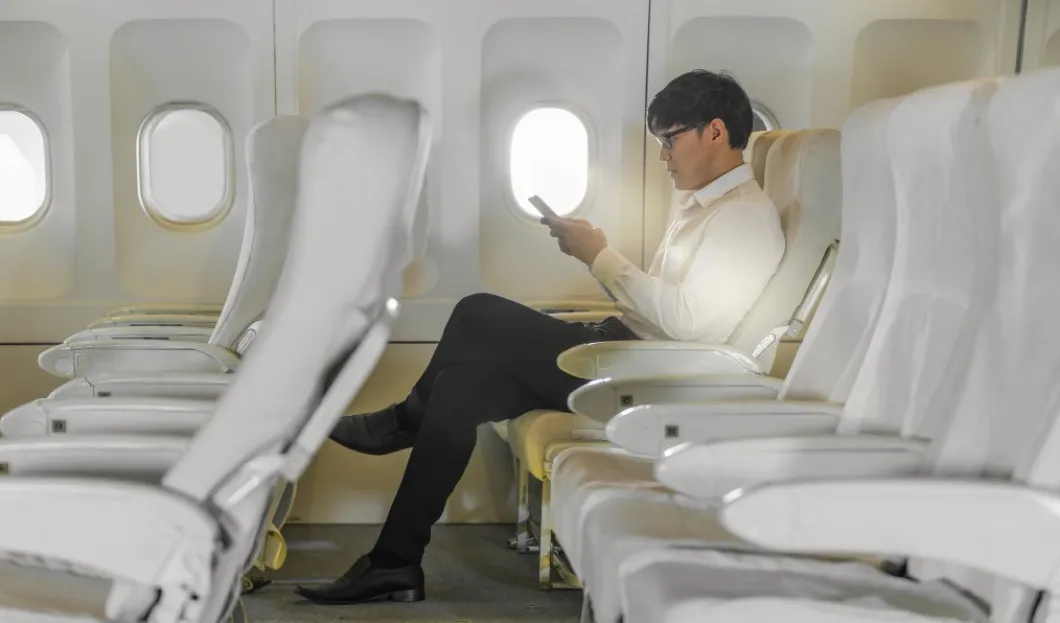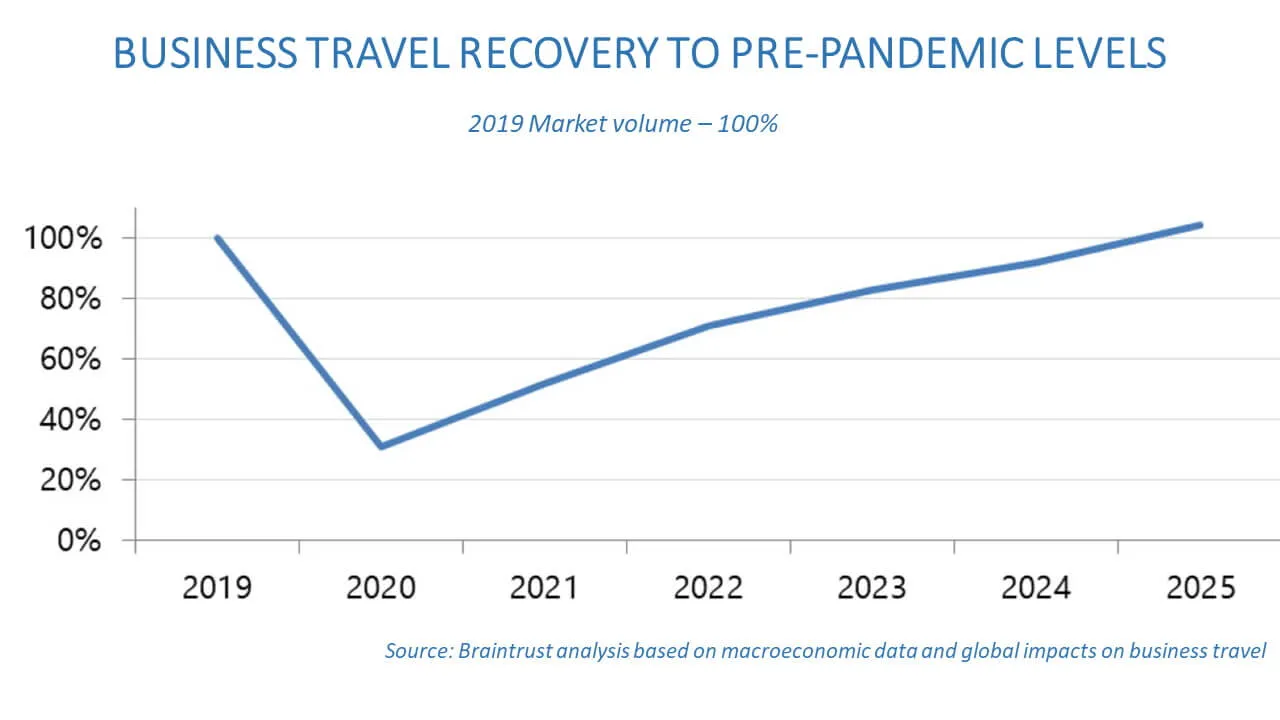
The recovery of business travel begins, although at a slower pace than leisure travel. The latest Tourism Barometer from BrainTrust on business travel revealed that this industry will grow more than 50% in the next two years, although pre-Covid levels won’t be achieved until 2025. The study also highlights that travel agencies specialized in business trips will gain a market share close to 60% after the pandemic, despite the fact that there could be “a strong war” between travel suppliers to increase direct sales.
According to the report, this year business travel will reach 52% of the 2019 figures, showing a strong rebound in 2022 and 2023, all the way up to 83%. In the following two years, business travel will be at pre-Covid levels while continuing to grow at a moderate rate due to sustainability, with goals having been set for the entire travel and tourism industry, provided that the pandemic is finally overcome.
Experts agree that some of the elements that will favor the recovery are the vaccination campaigns in the main western markets for business travel, and the implementation of the EU Digital Covid Certificate.
Among the new reasons for travel, the report states that there will be more meetings to bring workers together, which is a common trend during the pandemic. At the same time, strategic events can be expected to bring together smaller numbers of people more frequently.
The report highlights that common policy in the European Union and other countries will favor exchange programs in international projects. At the same time, there will be more activity in ‘bleisure’ trips (the combination of business and leisure) given the rise of new travelers adopting this trend. Also, new economies will appear in the post-Covid era, such as the green economy, the digital economy and the circular economy.
However, the report also mentions a series of factors that may negatively impact business travel, such as health emergencies that may continue to affect long-haul travel, especially in countries where herd immunity is not achieved, which would have a strong impact on the market in 2022 and 2023.

The appearance of new COVID-19 variants could also slow down the recovery in many countries, especially if the vaccines cannot protect people against them.
Likewise, working from home also has an impact on travel, such as significantly reducing short-haul trips. Digital tools continue to become the norm and have already put an end to a good part of non-essential trips, and this without taking into account the disappearance of many businesses once the government aid ends.
Experts also mention that the implementation of stricter travel policies in business trips to help achieve a lower environmental impact could have a strong impact as well.
One of the factors that will impact the business travel industry the most will be compliance with the Sustainable Development Goals included in the 2030 Agenda, where caring for the environment will be a priority.
The consulting firm forecasts that, as business travel will need to be more sustainable, the growth rate of this industry will not be as high as in the past decades.
The Role of Travel Agencies
According to the Tourism Barometer, travel agencies specialized in business trips will play an important role in the post-Covid era, since this scenario of uncertainty makes the safety of travelers, spending efficiency and caring for the planet more valuable.
The report says that while there could be “a strong war” between travel suppliers to increase direct sales, there will be a rise in intermediaries, and agencies will get a share close to 60%. The reason for this is how complex the planning of business trips, both individually and in groups, will be in the future.
Therefore, retailers will benefit more than direct channels, turning the current business travel into an industry of mobility and corporate communication. Meanwhile, airlines and hotel chains, says the report, should rethink their business models since business travel accounted for a small part of the total share of travelers, but represented a large sum of their income.










